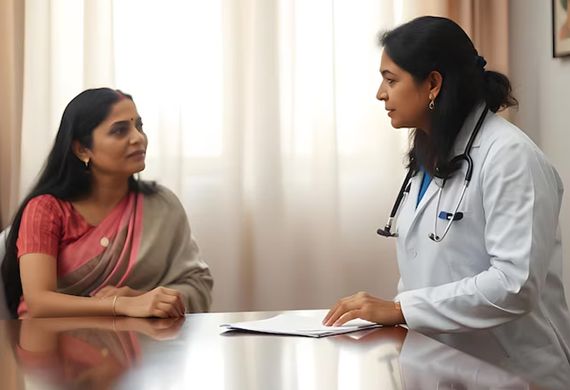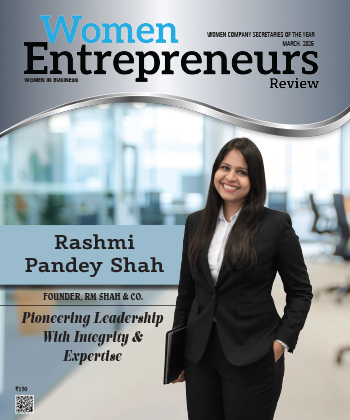
Study Reveals India Among Countries with Lowest Breast Cancer Screening Rates
By: WE staff | Tuesday, 15 April 2025
- Recent studies show only 1.3 percent of Indian women over 45 undergo breast cancer screening
- India has one of the lowest breast cancer screening rates in the world
- Experts are demanding urgent policy changes and public campaigns to address the issue
A recent survey showing that only 1.3 percent of women aged 45 years and above in India get breast cancer screening has urged experts to suggest immediate policy changes, more awareness drives, and better healthcare infrastructure to prod more women to test.
A study in BMC Public Health reports India's breast cancer screening rates to be the lowest in the world. While the US and most of Europe have screening rates in excess of 80 percent, India trails behind—indeed, even behind many African countries, where they reach 4.5 percent. In India, Kerala leads the way with a meager 4.5 percent, followed by Karnataka (2.9 percent) and Maharashtra (2.05 percent). Delhi is astounding with a less than 1 percent screening rate.
Experts blame these low rates on a mix of poor information, social stigma, limited access to diagnostic centers, and deep-seated myths about mammography. The vast majority of women are unaware that early detection dramatically enhances survival—over 90 percent in some cases—and thus frequent screening is vital.
Dr. Ashish Gupta, Head of Medical Oncology at Amerix Cancer Hospital, cites misinformation and cultural taboo as being among the major hurdles. "Fear, societal pressure and lack of education deter women from undertaking timely tests, many times resulting in a late-stage diagnosis," he said. In rural India, the lack of diagnostic centers within accessible distance makes it even more difficult as the cost and time of travel also become insurmountable hurdles.
Misconceptions about the safety and pain of mammograms also keep women away. Dr. Ashish stressed the need for prompt interventions: mass campaigns, mobile vans for remote areas, and free screening programs sponsored by the government to remove economic impediments. He also said that grassroots work is required—coalitions with local leaders, NGOs, and social opinion leaders might be able to reverse stigma and integrate screenings into regular life.
Dr. Shubham Garg, Surgical Oncology Director of Dharamshila Narayana Superspeciality Hospital in Delhi, suggested the inclusion of breast health education at schools. Training young girls on self-examination can create long-term awareness and encourage them to get mammograms after the age of 45. He also suggested including cancer screening in corporate health packages.
To justify the same, Dr. Ashish quoted that incorporation of mammograms in corporate health packages can motivate working women to take care of themselves. Dr. Rahul Bhargava, a senior oncologist at Fortis Memorial Research Institute, seconded that education is the key to increasing screening levels. "It's time to act. Women's health must be a national priority. No woman should die from a curable disease if detected early," he added.
Most Viewed
- 1 Women's Health Startup HerMD Closing Doors Amid Industry Challenges
- 2 5 Famous Women in Indian Armed Forces
- 3 Saudi Women No longer Require Male Permission for Clothing Choices, says Prince MbS
- 4 Kolkata Medtech Startup Innovodigm Raises Rs 5.5 Crore Seed Funding Led by IAN Group
- 5 Yamunanagar's Kashish Kalra Honoured after Securing 111th Rank in UPSC Civil Services Exam
- 6 Madurai Appoints Its First Woman Corporation Head
- 7 IAS Vijayalakshmi Bidari Appointed as the new Nagpur Divisional Commissioner
- 8 American Entrepreneur Lucy Guo Overtakes T Swift to become Youngest Female Billionaire
- 9 ICC Women's World Cup 2025 Trophy Showcased at Indore's Holkar Stadium
- 10 Aparna Saxena's Beauty Venture AntiNorm Launches in India
- 11 Vidya Nataraj Co-Founded BlueStone Jewellery & Lifestyle files IPO
- 12 5 Women Freedom Fighters of India
- 13 Dr. G Krishnapriya appointed as CEO for Trichy
- 14 M3M & Sirona Partner to Introduce Menstrual Hygiene Vending Machines in 15 Locations
- 15 Punjab Govt launches SHE Cohort 3.0 Supporting Tech-led Women Startups
- 16 Indian origin Lawyer, Sweena Pannu appointed as the US New Superior Court Judge
- 17 The Aurora Tech Award recognizes 4 Indian Women-led Startups
- 18 Kerala's Republic Day parade featured an all-female tableau
- 19 Manisha Kabbur Becomes Karnataka's First Woman International Karate Coach
- 20 Director K. S. Ravikumar's Daughter Maalica Ravikumar Launches Life Coaching Company 'Evergrowth Academy' for Women
- 21 Leezu's Raises Pre-Seed Funding to Accelerate Growth in Sexual Wellness Industry
- 22 Sattu: Super-easy summer drink for PCOS gut healing
- 23 Swathi Nelabhatla creates Sitha App, India's First Women-Exclusive Gig Platform
- 24 7 Timeless Female Kathak Dancers & their Iconic Legacies
- 25 Meet 7 Iconic Women Architects of Modern India & their Most Impactful Work
- 26 This Woman-led Insuretech Startup is Helping Bridge the Education Financing Gap in India
- 27 Women Leaders Share Lessons Learnt from India Women's WC Win
- 28 5 Enterprising Women Founders Powering Singapore's Tech & Innovation Landscape
- 29 4 Women. 4 Stories. One Vision for Smarter, Stronger Healthcare
- 30 Global Gender Gap Narrows to 68.8%, But Full Equality 123 Years Away: WEF Report 2025
- 31 Changemakers: 7 Women Entrepreneurs Taking the Make in India Movement Forward
- 32 Meet Lucy Guo, The Youngest Self-Made Female Billionaire Disrupting Tech
- 33 How Women are Driving India's Festive Online Shopping Surge






